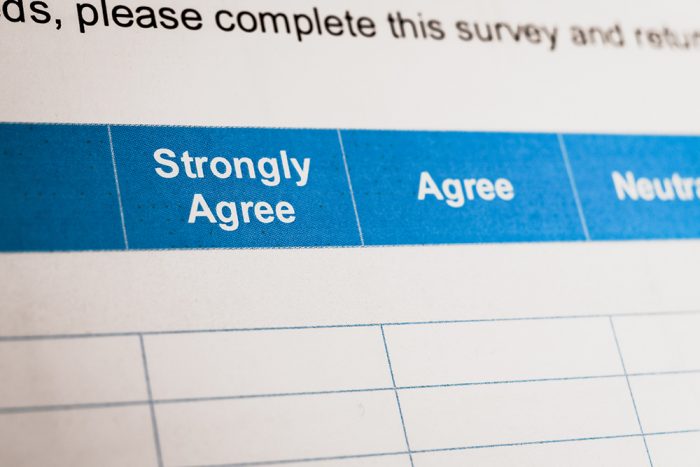Survey
RCPA Members Encouraged to Submit Comments and Complete Survey on Master Plan for Older Adults

On May 25, 2023, Governor Shapiro signed Executive Order 2023-09 — Pennsylvania’s Master Plan for Older Adults. This Executive Order directs the Pennsylvania Department of Aging to lead the Master Plan for Older Adults, a state-led, stakeholder-driven, 10-year strategic planning resource that can help states transform their infrastructure and coordination of services for older adult and disability populations.
The Department of Aging has been leading stakeholder listening sessions and presenting at various venues across the state in order to gather input and comments that will support the development of the master plan. Visit here to see the dates and times of virtual listening sessions planned in September; included in these sessions is a PowerPoint presentation.
Members are encouraged to contribute what you think should be the plan’s priority goals, objectives, and initiatives to support the highest quality of life for older adults. Comments can be shared here, via email, or by mail to Pennsylvania Department of Aging c/o Master Plan, 555 Walnut Street, 5th Floor, Harrisburg, PA 17101.
Members are also encouraged to complete the Needs Assessment Survey, which is designed to capture the experience of older adults and adults with disabilities. The survey will remain open until September 30, 2023.
IBHS Provider Survey Extended to September 22
The Mental Health Planning Council, under the direction of the Office of Mental Health and Substance Abuse Services (OMHSAS), has extended the survey on delivering Intensive Behavioral Health Services (IBHS) until September 22, 2023. Agencies may access the provider survey directly and view the flyer for more details. Feedback will be de-identified and compiled by the Family Satisfaction Team of Montgomery County to be shared with relevant stakeholders and survey participants.
RCPA, on behalf of our members and those they serve, continues our efforts advocating for children, families, and practitioners delivering IBHS services. We respectfully ask our members to share this survey with families they are currently serving. The information will be utilized to examine challenges and opportunities in creating more viable pathways to IBHS services. Feel free to also share this information with other providers in your network of stakeholders.
If you have questions, please contact Clare Higgins or RCPA Policy Director Jim Sharp.
2023 ID/A Workforce Compensation Study Announced
RCPA members are encouraged to participate in the ID/A Workforce Compensation study conducted by and in collaboration with the Center for Healthcare Solutions described below. The Center for Healthcare Solutions performed the survey that we supported last year, as well. This study is being done jointly with several other statewide and regional associations, and we are hoping that providers across Pennsylvania will participate in order to provide adequate data for use in advocacy efforts to improve conditions for our workforce. This also presents an opportunity to have comparative data.
The scope of this survey and the report generated from it will address compensation practices for 46 positions, including Direct Support Professionals (DSP), supports coordinators, frontline supervisors, clinical positions, program specialists, facilities staff, and administrative personnel. It will also provide data on staff vacancies and turnover that continues to impact care and services across Pennsylvania.
Any ID/A employer in Pennsylvania is eligible to participate in the survey and will receive the published report, which will also be provided to the Pennsylvania Office of Developmental Programs. As always, CFHS follows all FTC/DOJ guidelines to de-identify data and maintain confidentiality. If you are a member of multiple associations, you only need to complete the survey once.
Two files are included: the input form and the general instructions for filling out the input form. Completed surveys may be emailed to Steve Forest or uploaded via SFTP (information included in the instructions) by Friday, September 22. The published report is expected to be issued on Friday, October 6.
Additionally, a workshop has been scheduled for Thursday, September 7, at 10:00 am to review the survey and assist participants in its completion. To register for this workshop, please visit here.
Department on Aging Seeks Consumer Input
The University of Pittsburgh and other Pennsylvania-based partners are supporting the efforts of the Commonwealth of Pennsylvania, led by the Pennsylvania Department on Aging, to develop a Master Plan for Older Adults. Please circulate this survey on PA Aging and Disability Needs to your consumers and encourage them to complete it ASAP.
This project is being led by Dr. Howard B. Degenholtz and Dr. Steven Albert from the University of Pittsburgh School of Public Health. Please use this link to share any questions or concerns you have about the process.
If you have any questions, please contact Fady Sahhar.
OMAP Pediatric Shift Care Stakeholder Update Call Rescheduled & Survey Date Extended
The Pennsylvania Office of Medical Assistance Programs (OMAP) Pediatric Shift Care Team is conducting a survey to identify individuals interested in participating in the development of education and training content for a new online learning portal. More will be shared about this effort during the upcoming Stakeholder Update Call, which is taking place on August 15 from 10:30 am – 12:00 pm.
If you are interested in participating in the initiative, please take this short 2-minute survey: Pediatric Shift Care Subject Matter Expert Interest Survey. The survey has been extended and will close on August 18, 2023, following the Stakeholder Update Call.
Provider Feedback Requested on the Delivery of IBHS

The Mental Health Planning Council, under the direction of The Office of Mental Health and Substance Abuse Services (OMHSAS), is conducting a survey on delivering Intensive Behavioral Health Services (IBHS) and is requesting assistance in provider responses to the survey. Agencies may access the provider survey directly and view the flyer for more details. Feedback will be de-identified and compiled by the Family Satisfaction Team of Montgomery County to be shared with relevant stakeholders and survey participants.
Data collection for the survey will run from August 1, 2023 – August 31, 2023.
RCPA, on behalf of our members and those they serve, continues our efforts advocating for children, families, and practitioners delivering IBHS services. We respectfully ask our members to share this survey with families they are currently serving. The information will be utilized to examine challenges and opportunities in creating more viable pathways to IBHS services. Feel free to also share this information with other providers in your network of stakeholders.
If you have questions, please contact Clare Higgins or RCPA Policy Director Jim Sharp.
DHS Seeks Survey Feedback Regarding Plan of Correction Webinar & Resources
The Department of Human Services (DHS) recognizes that the corrective action process is a cornerstone of human services licensing. In 2019, the Department released a webinar, Developing a Plan of Correction, to assist providers with the successful development and implementation of acceptable Plans of Correction. Likewise, the Plan of Correction Quick Reference Guide was issued as a tool to assist our providers with this process.
The Department is seeking your feedback on these resources. Please complete this survey by July 26, 2023, in order to assist DHS in determining what additional steps are needed to ensure that our providers are sufficiently educated and supported in the Plan of Correction process.
If you have further questions, please contact your respective RCPA Policy Director for guidance.
Reminder: ODP Requests Providers Participation in National Core Indicators Survey
ODP Announcement 23-049 shares that the Human Services Research Institute (HSRI) has extended the deadline for completing the 2022 National Core Indicators® (NCI) State of the Workforce Survey. The portal will now close on Monday, July 31, 2023.
A national deadline extension has given eligible provider agencies in Pennsylvania an opportunity to complete the NCI State of the Workforce Survey. If your agency has already completed the survey, no additional action is needed.
To obtain a representative sample, HSRI is aiming for a 5% or lower margin of error for each participating state. The lower the margin of error, the more representative and impactful the data will be. Based on current responses, Pennsylvania has a margin of error of 8.4%. The Office of Developmental Programs (ODP) is encouraging providers to complete the survey, which will give stakeholders critical information about workforce metrics.
For any questions, please contact Ms. Lee Stephens, ODP Independent Monitoring for Quality (IM4Q)/NCI Statewide Lead.
Pediatric Shift Care Announces Stakeholder Update Call & Survey

The Pennsylvania Pediatric Shift Care team announced the next Stakeholder Update Call will take place virtually on August 1, 2023, from 10:30 am – 12:00 pm. A meeting invite with connection information will be posted at a later date.
The Pediatric Shift Care initiative also requests any individuals with expertise in the Pediatric Shift Care experience that is interested in participating as a Subject Matter Expert to support development of education and training content to please complete a survey indicating your interest. More information regarding the online learning portal will be shared during the next Stakeholder Update Call. If you are interested in participating, please take this short 2-minute survey: Pediatric Shift Care Subject Matter Expert Interest Survey. The survey will close on August 4, 2023.














